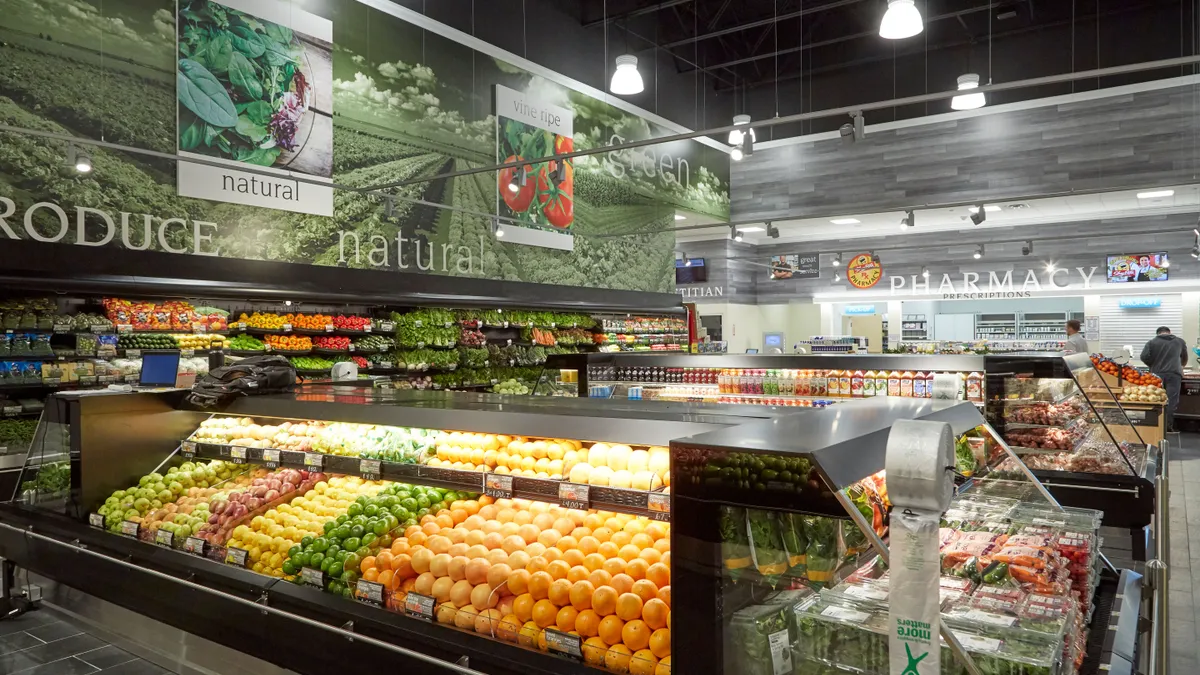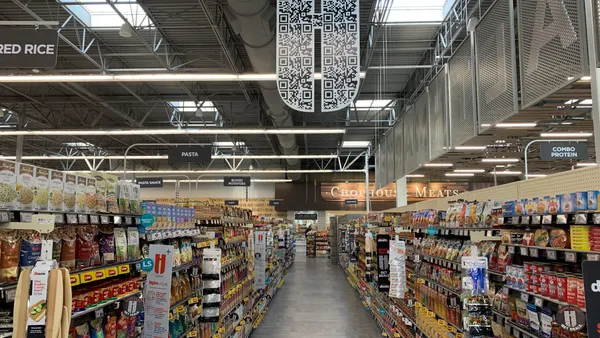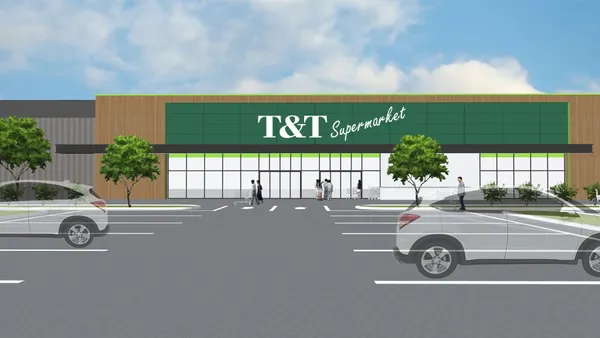Dive Brief:
-
In a survey of 5,000 members conducted by the United Food and Commercial Workers International Union, 96% said they are concerned they will be sickened by the coronavirus and 85% have seen customers getting too close to other people, UFCW president Marc Perrone said yesterday during a call with reporters.
-
The union has written to CDC director Robert Redfield to urge the federal public health agency to require grocers to provide personal protective equipment to workers, limit the number of customers allowed inside stores at one time and keep people at least six feet apart. “This is not union versus nonunion, nor is it about politics or party. This is about life or death. Workers are being exposed and they are dying,” Perrone said during the press conference
- The union has launched a national campaign, “Shop Smart,” to encourage people to cover their faces and follow social distancing guidelines when they shop for groceries. “Ideally, our goal would be that our federal and state leaders would mandate these safety steps. But we can’t wait for that to happen,” said Perrone.
Dive Insight:
The UFCW’s appeal to grocery shoppers follows the CDC’s April 3 announcement that it is recommending people cover their faces in public, a reversal of its earlier recommendation that people not wear face masks unless they are sick. The revised guidance has spurred some jurisdictions, including Los Angeles and New Jersey, to require customers and workers to cover their faces in supermarkets, but doing so remains voluntary in most of the country.
The CDC’s initial guidance contributed to a sense among many people that someone wearing a mask might be sick, leading grocers to initially frown on workers wearing masks or gloves on the job or even forbid them from doing so, Perrone suggested. “We think [it] that was a problem that the CDC put those guidelines out,” he said, because it encouraged shoppers and supermarkets to downplay the risk that people could catch the virus while shopping for groceries.
A key issue for the union is that the federal government is still not requiring people to cover their faces while in grocery stores. “We hear every day that members of the public are either unaware they need to protect each other or themselves while they’re shopping," Perrone said, and are “desperate for corporate and government leaders to act and for the public to change its behavior.”
Grocers have worked to keep their stores from serving as breeding grounds for the disease, taking measures such as installing plexiglass barriers, limiting the number of people allowed in at a single time and putting in markers designed to promote social distancing. When Walmart announced that it was stepping up its efforts to make its stores safer, it noted that some customers have flaunted the guidelines, and “put undue risk on our people.”
Perrone added that the lack of a coordinated federal effort to make personal protection equipment available to people who needed them most made it harder for grocery stores to obtain the gear for their workers as public health guidance evolved. “We think that because there wasn’t a federal response to the masks and control over who was going to get them, where we had hot spots like in New York and New Jersey, those masks didn’t end up going there, they went to other locations,” he said.
The UFCW is using personal accounts from grocery workers to help convince consumers to take the risk of catching the infection in grocery stores more seriously.
“Customers need to shop more with their eyes than with their hands,” Dusty Gearhard, a meat market manager at Homeland Stores in Oklahoma City, Oklahoma, said during the press call. “They will go and touch a lot of different items checking for dates or to try to get the one in the back...in my department, they’ll flip through every package of it, which we have to go back and we have to straighten up, and then other customers will do it again, and it’s just causing a lot more exposure where it’s unneeded.”













